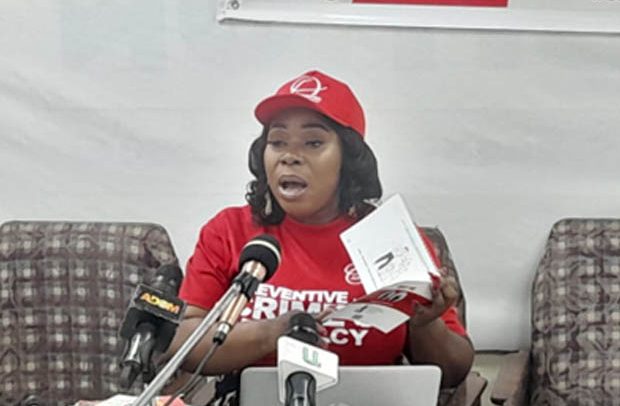
Renal failure or Chronic Kidney Disease (CKD) is a grave health concern that impacts numerous individuals. Patients with CKD often require dialysis or a kidney transplant to sustain their lives, but these treatments do not provide a definitive cure. They must continually grapple with the challenges and risks associated with living with kidney disease.
The recent agitations on the proposed new price of renal dialysis at the Korle Bu Teaching Hospital even bring to light the need for more public education and sensitization on the severity of renal failure or CKD.
Abigail Ashley, who has undergone a successful kidney transplant, is intimately familiar with this reality. She continues to battle CKD every day of her life. In her dialogue with Citi News, she underscores that a kidney transplant is not the end of the struggle, but merely another strategy for managing one’s kidney function.
“After the transplant, you regain the ability to urinate because the kidney is now operational. Your body can produce its own blood, hormonal balances are restored, and you experience feelings just like any other person. If you’re a woman, you’ll resume menstruation a month or two after the transplant. During your illness, many of the body’s systems cease functioning, but once the kidney is replaced, all those functions reactivate.”
“However, this doesn’t mean the battle for the new kidney concludes. It’s crucial to remember that it wasn’t originally part of your body, so there’s a high likelihood that your body perceives it as a foreign organ, even though it’s there to save you. That’s why you must persist in taking immunosuppressants to prevent your body from rejecting the new kidney. This can occur at any time, which is quite terrifying when you think about it. After all the investigations, what if…That’s another worry. Not to mention how expensive the medications are after a transplant and how much you need them. Unfortunately for us in our part of the world, we have only a handful of transplant patients. And because of how costly the drugs are, only a few pharmacies stock them and the price keeps escalating. Unless there’s no increase in the dollar value, then the cost of medications goes up. And sometimes there’s even a shortage of medications, and we go into crisis. It’s not easy. Kidney disease is lethal; you never cease fighting it,” she explained.
Ms Ashley emphasized that these medications must be taken for life unless one wanted to risk losing the transplanted kidney. She added that sometimes people even lost it despite taking the medications – such is the irony of life.
She has to take immunosuppressant drugs to prevent her body from rejecting the new kidney. These drugs are costly and sometimes scarce. She also has to undergo regular tests and be cautious of infections that could harm her new kidney.
She asserts that kidney disease is deadly and one never ceases fighting it but advises people with CKD to accept their situation and live positively.
Ms Ashley also urges people to be aware of CKD risk factors such as hypertension and diabetes and encourages regular checks on blood pressure and kidney function.
She also advocates for a healthy diet low in salt, sugar, and red meat but high in vegetables and fruits.
“Overthinking can exacerbate stress on an already diseased kidney. It’s crucial to accept the situation, embrace it, and keep moving forward as if each day is a gift.
“Hypertension and diabetes are significant risk factors for kidney disease. If you have a family history of these conditions, it’s important to be extra vigilant. If you’re managing these conditions, please take it seriously. For everyone else, don’t dismiss headaches as something normal. Sometimes you need to go the extra mile – get your blood pressure checked and have some lab tests done. As for dietary habits: consider reducing your intake of red meat and salt,” Ms Ashley advises.
The post Surviving renal failure: An unending fight from a transplant survivor’s perspective – Abigail Arthur writes appeared first on Citinewsroom - Comprehensive News in Ghana.
Read Full Story









Facebook
Twitter
Pinterest
Instagram
Google+
YouTube
LinkedIn
RSS